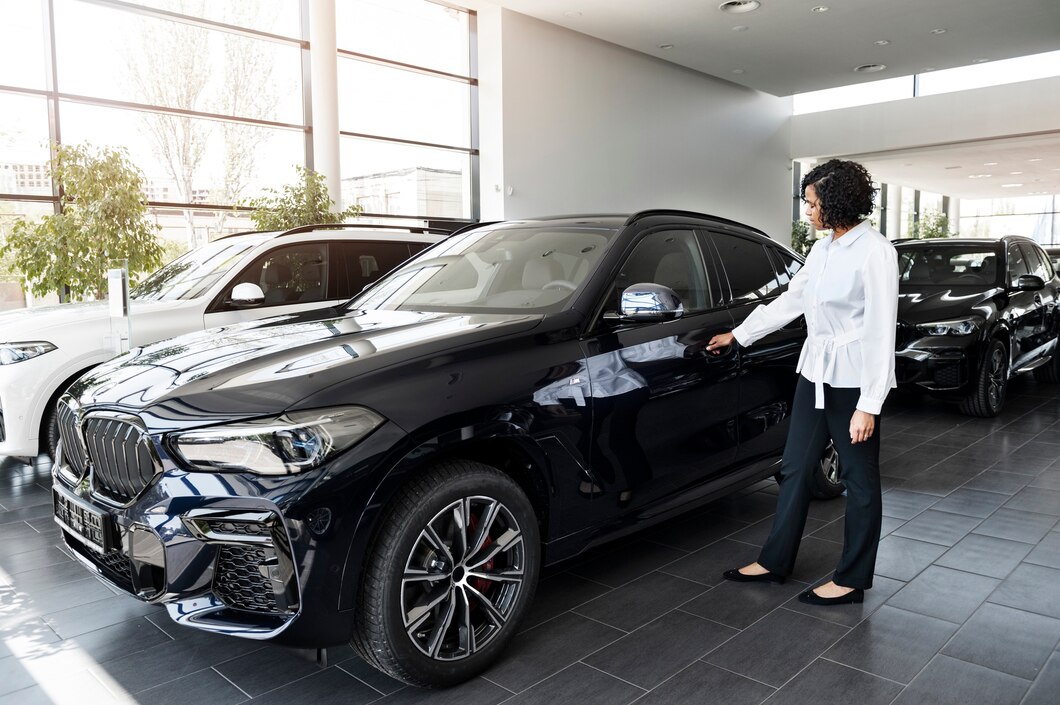Buying a second-hand luxury car can be an exciting venture, offering the opportunity to own a prestigious vehicle at a more affordable price. However, it also comes with unique considerations and potential challenges. Here’s a comprehensive guide on what to keep in mind when purchasing a used luxury car:
1. Budget and Affordability:
Luxury cars are known for their higher initial cost and potentially higher maintenance and repair expenses. Before diving into the market, establish a realistic budget that includes not just the purchase price but also ongoing costs like insurance, maintenance, and fuel. Ensure that owning a luxury car fits comfortably within your financial means.
2. Research and Model Selection:
Research different luxury car models to find one that suits your needs and preferences. Consider factors such as performance, features, reliability ratings, and owner reviews. Certain brands and models may have specific quirks or maintenance requirements, so gather as much information as possible before making a decision.
3. Certified Pre-Owned (CPO) vs. Non-CPO:
Certified Pre-Owned vehicles often come with extended warranties and undergo rigorous inspections to meet manufacturer standards. They typically cost more than non-certified used cars but offer added peace of mind regarding condition and reliability. Non-CPO vehicles may be cheaper but require thorough inspection and verification of maintenance records.
4. Vehicle History and Inspection:
Obtain the vehicle identification number (VIN) and request a comprehensive vehicle history report. This report details ownership history, past accidents, service records, and whether the car has a clean title. Additionally, conduct a thorough inspection or hire a professional mechanic to inspect the car’s condition, both mechanically and cosmetically.
5. Mileage and Condition:
While mileage is important, it’s not the sole indicator of a luxury car’s condition. High-quality maintenance and care can mitigate the effects of higher mileage. Evaluate the overall condition of the interior, exterior, and mechanical components. Look for signs of wear, such as worn-out leather, dashboard cracks, or unusual engine noises.
6. Maintenance and Repair Costs:
Luxury cars often come with higher maintenance and repair costs due to specialized parts and technologies. Research common issues associated with the model you’re interested in and estimate potential maintenance expenses. Factor these costs into your budget to avoid unexpected financial burdens down the road.
7. Dealer vs. Private Seller:
Decide whether to purchase from a reputable dealership or a private seller. Dealerships may offer CPO programs, financing options, and warranties, but prices may be higher. Private sellers may offer lower prices but come with fewer guarantees. Ensure that any private seller provides thorough documentation and allows for a professional inspection.
8. Negotiation and Market Value:
Research current market prices for the luxury car model you’re interested in, considering factors like mileage, condition, and geographic location. Use this information to negotiate a fair price, whether you’re buying from a dealer or a private seller. Be prepared to walk away if the seller isn’t willing to negotiate within a reasonable range.
9. Ownership Experience and Resale Value:
Consider the long-term ownership experience and potential resale value of the luxury car. Certain brands and models may hold their value better than others, depending on factors like reliability, brand reputation, and market demand. Maintain regular servicing and keep all records to enhance the car’s resale value in the future.
10. Personal Preferences and Test Drive:
Ultimately, take your time to test drive the vehicle and ensure it meets your expectations in terms of comfort, performance, and driving experience. Pay attention to features such as technology, sound system quality, and interior amenities that contribute to your overall satisfaction with the luxury car.
By considering these factors and conducting thorough research, you can navigate the process of buying a second-hand luxury car with confidence. Whether you’re drawn to the prestige, performance, or comfort of luxury vehicles, careful planning and informed decision-making will help you find a high-quality car that fits your lifestyle and budget.











